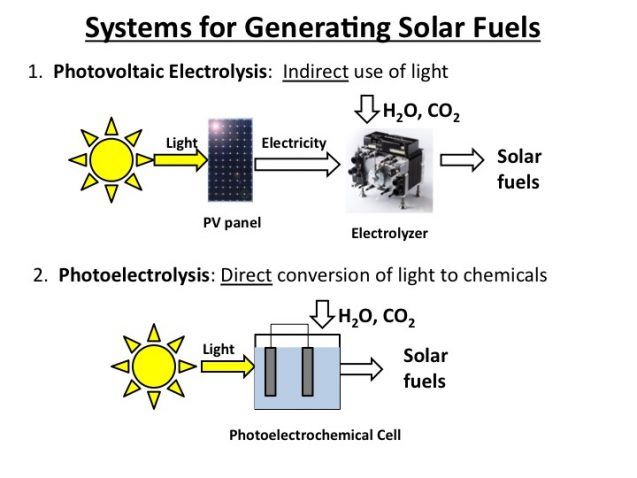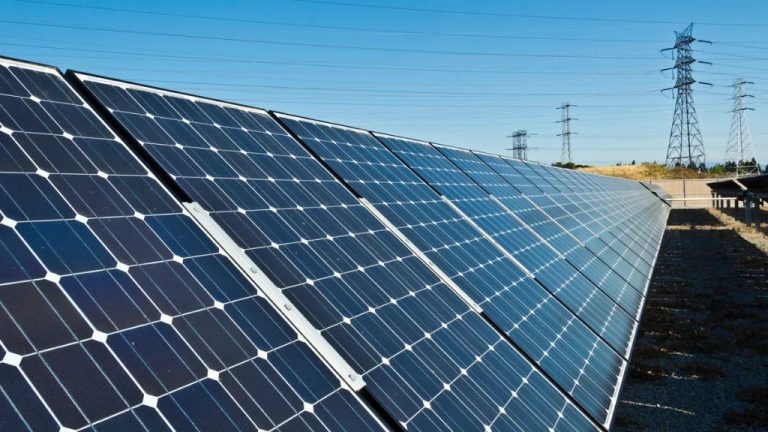What Are The 2 Biggest Advantages Of Using Solar Energy?
One of the biggest advantages of solar energy is that it’s a clean, renewable energy source.
Clean, Renewable Energy Source
Solar energy comes directly from the sun, which is a renewable resource. The sun constantly produces an enormous amount of energy in the form of sunlight and heat. As a renewable resource, sunlight can be harnessed indefinitely without depletion. Fossil fuels like coal, oil, and natural gas are finite resources that will eventually be used up. But the sun will continue shining for billions of years, making solar a sustainable long-term energy solution. Converting sunlight into electricity does not create any air or water pollution. Solar energy systems do not release emissions that cause smog, acid rain, or health problems. This makes solar power one of the cleanest energy sources available. Harnessing the sun’s abundant energy can help reduce reliance on dirty fossil fuels that pollute the environment.
Reduces Reliance on Fossil Fuels
One of the biggest benefits of solar energy is that it reduces our reliance on fossil fuels like coal, oil and natural gas. Most of the energy we consume today comes from these non-renewable sources that take millions of years to form. Not only are fossil fuels finite, but burning them produces greenhouse gases like carbon dioxide that contribute to climate change. Solar power provides a clean alternative that reduces the amount of fossil fuels we need to burn to generate electricity and power our homes, businesses and industries. According to the Solar Energy Industries Association, solar currently accounts for just over 2% of U.S. electricity generation. But as solar technology improves and costs continue to fall, solar has the potential to replace a significant portion of fossil fuel generated electricity. The U.S. Department of Energy has projected that solar could provide 20% of the nation’s electricity by 2030 and up to 35% by 2050. Widespread adoption of solar would dramatically reduce greenhouse gas emissions and reliance on unstable energy markets prone to price volatility.
Lowers Electric Bills
One of the biggest advantages of solar panels is their ability to lower electricity costs for homes and businesses. By installing solar, you can reduce or even eliminate your electric bill each month. How much you save depends on factors like the size of your solar system, electricity rates in your area, and the amount of sun exposure at your site. But across the board, adopting solar translates to less money spent powering your home or business.
Solar panels produce clean electricity from sunlight, feeding any excess energy back into the grid. This allows you to earn bill credits for the surplus electricity you generate but don’t use. So during sunny days when your solar system produces more than you need, your meter spins backwards and your provider owes you. At night or during storms, you can draw power from the grid per usual.
The more energy your solar system generates, the lower your bills. With enough solar capacity, it’s possible to zero out monthly charges completely and gain energy independence. Of course upfront system costs apply, but solar pays for itself over time. And as equipment prices fall and electricity rates rise, solar becomes even more cost-effective.
Lower bills provide stability and savings that benefit households, businesses, and organizations over the long-term. Financial incentives like tax credits can further reduce the costs. So for those looking to cut energy costs in an eco-friendly way, solar delivers significant savings.
Requires Little Maintenance
Once solar panels are installed, they require very little maintenance compared to other energy sources. Solar photovoltaic (PV) systems have no moving parts and are mainly passive systems. This makes solar PV systems reliable and eliminates the need for regular maintenance or servicing. The only maintenance required is keeping the panels relatively clean by washing off any dirt or debris a few times per year. This helps maximize solar absorption. Other than occasional panel cleaning, the inverters, batteries, and other system components are designed to operate consistently with minimal oversight. Overall, solar power systems are straightforward to maintain for decades after the initial installation.
This contrasts sharply with the substantial maintenance required for fossil fuel power plants and equipment. The labor, supplies, and downtime involved with maintaining coal, natural gas, and nuclear plants is extensive. Solar panels just need sunshine and basic cleaning to keep producing abundant clean energy for years.
Variety of Applications
Solar energy can be implemented in a wide variety of applications, ranging from small-scale residential to large-scale utility deployments. For homes, solar panels can be installed on rooftops to generate electricity and heat water. Businesses can also install rooftop systems to offset their energy usage and lower utility bills. At a larger scale, solar farms with thousands of panels can provide renewable power directly to the grid. The modular nature of solar panels allows systems to be configured in different sizes to meet specific needs. Whether a few kilowatts on a house, a few hundred kilowatts on a warehouse, or hundreds of megawatts powering cities, solar provides a versatile solution.
Beyond electricity, solar thermal technology can heat water and interiors. Solar-powered pumps are also an option for moving water. Ultimately, the wide-ranging applications make solar a viable option for those looking to utilize renewable energy, reduce fossil fuel dependence, save money, or boost sustainability. With flexibility in size and siting, solar can be implemented at diverse settings to serve homes, businesses, communities, and utilities.
Improves Energy Security
Switching to solar energy improves energy security by diversifying the energy supply and reducing dependence on any single fuel source. This makes the power grid less vulnerable to price volatility or supply disruptions. With solar, there is no fuel to purchase, transport or store. The abundant solar resource is free and available everywhere the sun shines. Solar energy is also produced domestically, keeping energy dollars in local communities rather than sending money abroad for imported fossil fuels. By decentralizing electricity generation, solar provides supply flexibility and resilience. If one solar site goes down, the rest of the grid is not impacted. Solar energy helps stabilize the grid, balance electricity supply and demand, and avoid blackouts during periods of peak demand.
Creates Jobs/Spurs Economy
The solar industry has rapidly expanded in recent years and now employs hundreds of thousands of workers in the United States alone. This job growth is expected to continue as more homes and businesses adopt solar energy. Installing solar panels on a roof or constructing a large-scale solar farm requires teams of specialized workers including electricians, engineers, manufacturing workers, project managers, and more. Once the systems are operational, additional jobs are created related to sales, technical support, operations, and maintenance. According to the Solar Energy Industries Association, the solar workforce has increased 167% over the last decade. The solar industry creates many blue collar jobs that pay well and cannot be outsourced. Solar projects can provide an economic boost to struggling rural communities through new long-term employment opportunities. As the costs of solar technology decrease and installations grow, this will drive further job growth and provide green career pathways. The rise of clean energy jobs has the potential to transform local economies and expand opportunities.
Scalable
One of the biggest advantages of solar energy is that it is highly scalable. Solar power systems can be scaled up or down easily to meet the energy needs of residential homes, commercial buildings, and even entire cities.
For a single home, a few rooftop solar panels may suffice to reduce electricity bills. For a large office building, a more extensive rooftop array can be installed. And large solar farms with thousands of panels can provide power for thousands of homes. The modular nature of solar panels makes it easy to add more panels over time as energy needs increase.
Solar energy systems can be uniquely customized for each application. Factors like the available installation area, sunlight exposure, energy demand, and budget can all be accommodated. No other energy source offers this degree of flexibility and scalability.
The scalability of solar power means it can play an expanding role in the global shift toward renewable energy. Solar arrays can be built wherever there is sufficient sunlight, allowing local generation of clean electricity. And improvements in solar technology and energy storage continue to enhance scalability even further.
Minimal Environmental Impact
One of the biggest advantages of solar energy is its minimal environmental impact compared to fossil fuels like coal, oil, and natural gas. When fossil fuels are burned to generate electricity, they emit high levels of greenhouse gases like carbon dioxide as well as air pollutants like sulfur dioxide, nitrogen oxides, particulates, and heavy metals. These emissions contribute to climate change, acid rain, and health issues.
Solar panels produce clean, renewable electricity without emitting any toxic pollution. Over its lifespan, a solar panel can offset over 30 tons of carbon dioxide emissions, which is equivalent to carbon captured by over 1,100 tree seedlings grown for 10 years. Solar energy greatly reduces air and water pollution and associated environmental and public health damages. The solar manufacturing process does require some energy, raw materials, and generates waste, but the emissions and impacts are still vastly lower than fossil fuel energy. With solar there is no need to extract and transport large volumes of finite resources either.
Solar power delivers electricity without the environmental damages linked to mining, drilling, transporting, storing and burning fossil fuels. This makes it one of the cleanest energy sources available today.
Technology Improvements
One of the biggest advantages of solar power is that the technology continues to improve over time, becoming more efficient and cost-effective. Research and development into solar photovoltaics (PV) aims to increase the efficiency of solar panels, enabling them to convert a greater percentage of sunlight into useful electricity. The typical solar panel on a residential rooftop converts only 15-20% of the available sunlight into electricity. But scientists are working on new materials and panel designs that can increase this efficiency rating, with some prototype panels now able to achieve over 40% efficiency in lab testing. As conversion rates increase, so does the energy output per solar panel, reducing the number of panels needed and lowering installation costs.
In addition, new manufacturing processes and economies of scale are bringing down the production costs of solar panels and related system components. Between 2009 and 2019, the average price of a solar panel dropped almost 90%. Continued declines in solar hardware prices, combined with higher conversion efficiencies, are making solar power more affordable and accessible.
Solar companies are also making advances with non-panel technologies such as inverters, battery storage systems, and smart energy management software. Together, these improvements are enabling solar PV systems to produce more electricity at lower costs than ever before. So while solar may not yet be the cheapest energy option everywhere, its competitiveness continues to grow thanks to rapid technology innovations.





